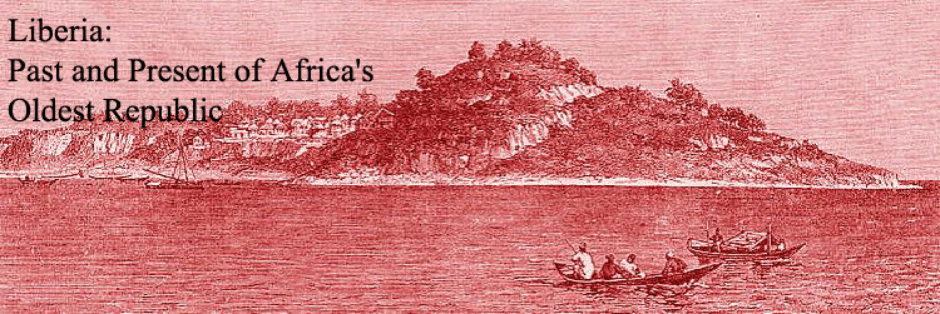Monrovia – Sunday, April 29
Today is a very special day: after 32 years I again set foot on Liberian soil! With my wife and two-year old son I left the country in the aftermath of the bloody 1980 coup that left President Tolbert dead and brought master-sergeant Samuel K. Doe to power, the country’s first indigenous president. We crossed the Liberian/Ivorian border on April 22, 1980, the day thirteen government officials and True Whig Party leaders were savagely executed on the beach of Monrovia.
The drive from Robertsfield International Airport where we landed this afternoon to the capital Monrovia was one with familiar scenes: palm trees everywhere, which immediately reminded me of the nearly-historic song ‘Precious Palm Tree’ of one of Liberia’s most famous singers, Mahalia Jackson Parker. The abundant green vegetation left no doubt: the rainy season had started. With a humidity of 77% the climate was bearable despite its 91 degrees F. (RealFeel 105).
Monrovia had become much more busy, compared to the 1970s when we lived here. No wonder, the population trippled between 1980 and 2010, mainly because of the influx of people during the civil wars that brought the modern economy nearly to a standstill and left nearly a quarter of a million people dead. The unemployment rate is shocking high: some 90 per cent of the population has no paid job. Tubman Boulevard, the capital’s main entrance coming from the international airport is now a four lane highway and we ran into a traffic jam caused by well-to-do Monrovians returning to their homes after a pleasant day at the beaches outside the capital.
Liberia always surprises. The US dollar is legal tender but also the Liberian dollar is used. The local banknotes are in the denomination of $5.00, $10.00, $20.00, $50.00 and $100.00. Just as in the USA, the Liberian dollar notes bear the effigy of past presidents. Three of the five presidents shown on the Liberian bank notes had a violent death: E.J. Roye, victim of the country’s first coup d’état (5 dollar note), Samuel K. Doe (50 dollars) and William R. Tolbert, Jr. (100 dollars). How many Liberians would know the history of these men who each stand for an important part of the country’s past?
